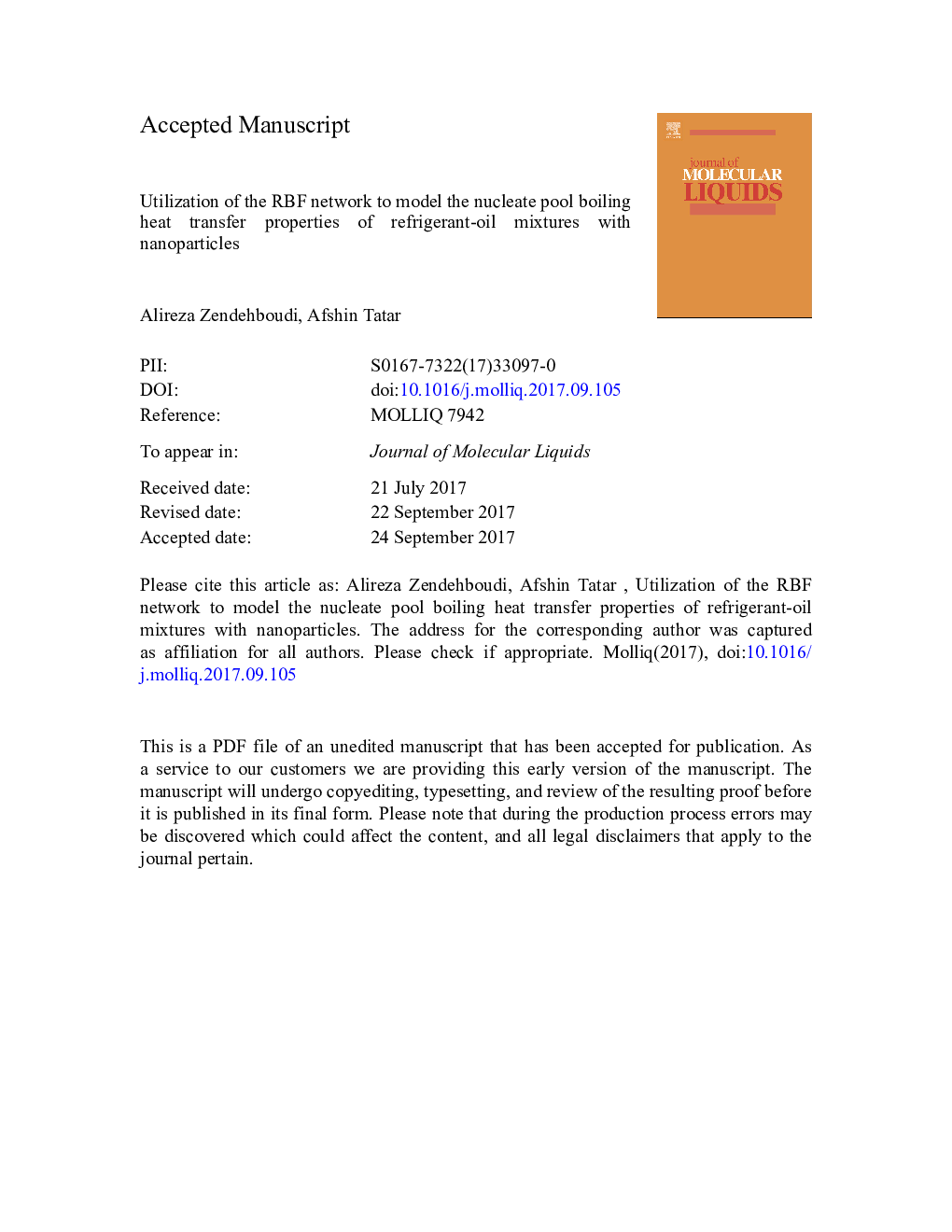| Article ID | Journal | Published Year | Pages | File Type |
|---|---|---|---|---|
| 5408207 | Journal of Molecular Liquids | 2017 | 33 Pages |
Abstract
The nucleate pool boiling heat transfer of refrigerant-oil mixtures with nanoparticles (h) and the impact of the presence of nanoparticles on the heat transfer coefficient (Fht) under different conditions are considered as the critical parameters for evaluating refrigeration systems and enhancing their performance. Previous scholars have implemented empirical correlations to predict the aforementioned parameters. The primary purpose of this communication is to develop a new intelligent method, with an emphasis on accuracy, based on the Radial Basis Function (RBF) neural network to estimate the aforementioned parameters. To construct and assess the suggested technique, 360 data samples for each parameter were collected, and the model performance was compared against those of other seven intelligent models. The comparative study results indicated the superiority of the RBF models, with a R2Â =Â 0.999547405 and RMSEÂ =Â 0.016892063 for h and a R2Â =Â 0.997755137 and RMSEÂ =Â 0.006300927 for Fht for all of the data samples. The secondary purpose of this communication is to indicate the applicability domains of the developed RBF models, evaluate the quality of the existing experimental data, and diagnose doubtful data samples, which are carried out using a mathematical technique on the basis of the Leverage algorithm.
Related Topics
Physical Sciences and Engineering
Chemistry
Physical and Theoretical Chemistry
Authors
Alireza Zendehboudi, Afshin Tatar,
